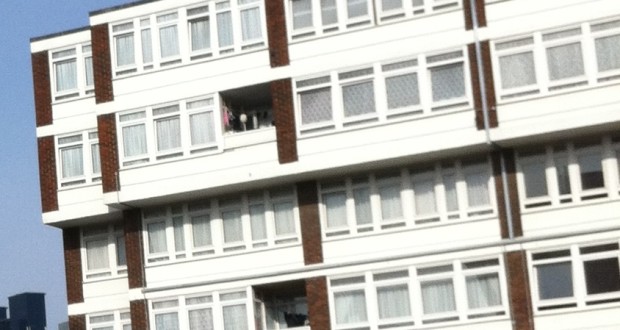The first quarter of 2015 saw 40,000 new homes being registered in the UK, according to figures collected by the NHBC. Unfortunately, only 5,622 of these were in London and, across the whole of the UK, only 9,735 were public sector homes. Tower Hamlets alone has around 20,000 households on its waiting list: the new homes are therefore welcome, but clearly nowhere near enough to meet demand.
The numbers show an increase of 18% when compared with the same quarter in 2014. However, the increase is accounted for by more private homes having been built: there was actually a small decrease in the number of public sector homes being built.
[Adverts]
With house-building at such a low level, prices will continue to remain high for years to come. This will leave the new Conservative Government with a dilemma: they need house prices to remain high to avoid another economic collapse; but prices are now spiralling upwards so quickly that a huge number of people who are homeless or living in overcrowded conditions cannot afford to accommodate themselves.
Prices are rising so quickly that housing in the UK has become very attractive to get-rich-quick merchants, many of whom live overseas (and don’t pay any tax in the UK). These people buy up houses and don’t even bother to let them out – so that in a year, or even a few months, they can sell the houses again, confident prices will have risen again so they will get more profit out of the house purchase and sale than they could have received by leaving their money in a bank.
The new Government looks likely to continue the policies of the Coalition. It will attempt to manage (rather than solve) the dilemma by subsidising private housing for owner-occupiers, while at the same time raising rents for those in social housing. This will help keep prices high, while also cramming those who cannot afford to buy a home into social housing.
The policy will also encourage existing private landlords to buy up more properties and increase rents and/or cram more tenants into their properties – with the high private rents being subsidised by public money through the housing benefit system. Various enterprising Councils had recently begun to crack down on profiteering private landlords by starting up registration schemes to stop landlords overcrowding their properties to unsafe levels. Even before the General Election, the Government was talking about removing Councils’ powers to do this. If these powers are removed, it will be harder for Councils to enforce the law – and easier for unscrupulous private landlords to mop up more of those in housing need.
The other tool which the Government is likely to use is continuing demonisation of the homeless, social housing tenants and black and Asian people. This is aimed at bolstering up the myth that the housing crisis is because non-deserving, non-white, illegal immigrant scroungers are filling up all the housing we have. Pushing points like this is working – as can be seen from the high vote for UKIP in the General Election (the party got the third highest vote, behind the Tories and Labour, even though it only won one seat).
The Government’s strategy – presuming it does continue with Coalition policy – is not universally and uncritically supported by housing professionals. Commenting on the latest registration statistics, NHBC Chief Executive Mike Quinton spoke up very diplomatically, saying: “Our figures show an encouraging start to 2015 with new housing registrations up 18% on the first quarter of last year. Housing growth levels remain strong across virtually every part of the UK. However, we have made clear that the UK is still building way below the volumes of homes that we need. NHBC looks forward to working with government to ensure that high quality new housing is a top priority.”
It’s early days to predict what will happen over the next five years – but the best advice for the moment seems to be: buy a tent!
 East London News A Force for the community…
East London News A Force for the community…




